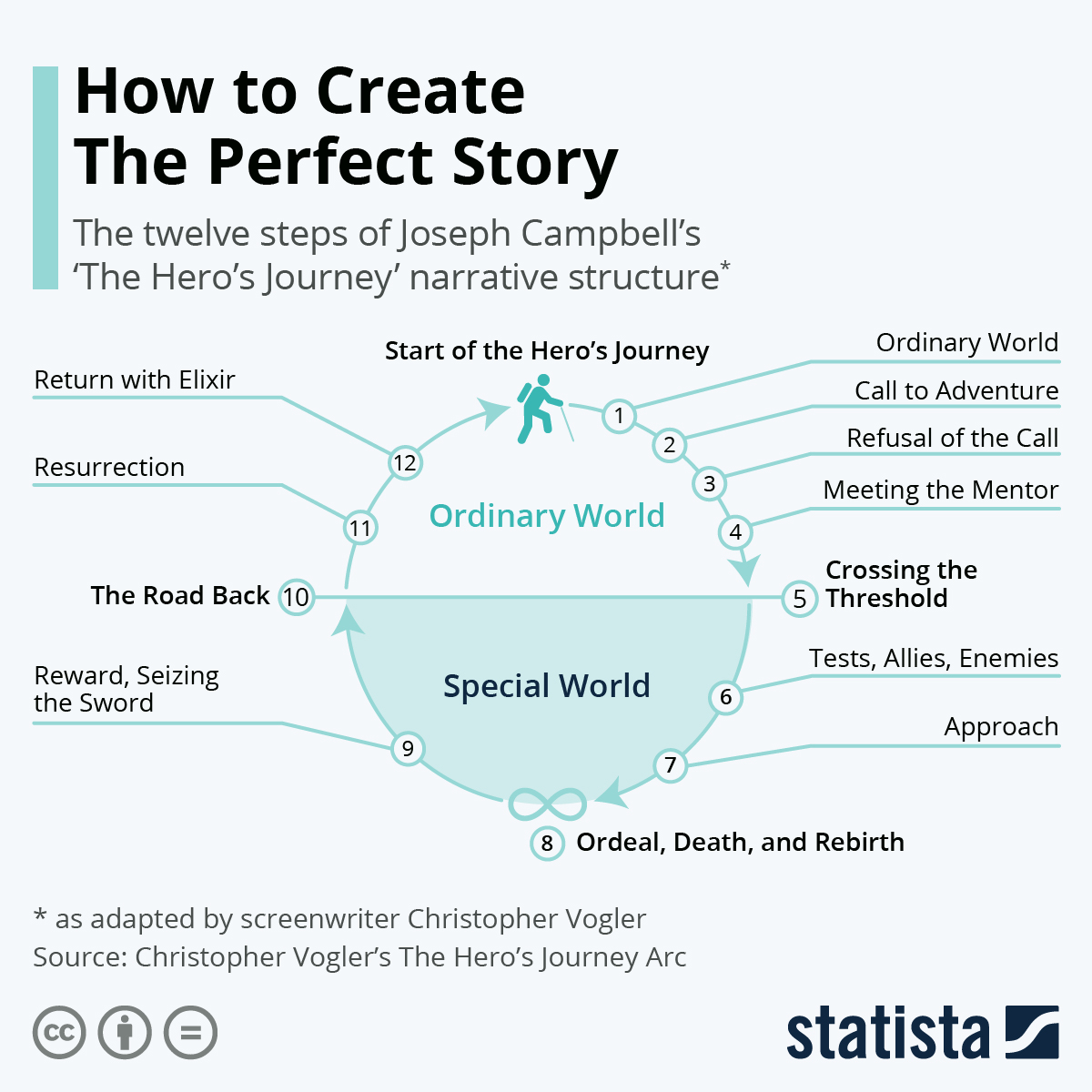Today, it’s Star Wars Day. To mark it, we are taking a closer look at what exactly makes the movies so great by diving into the algorithm of the narrative itself. Believe it or not, Star Wars has a special ingredient that is not unique to it alone. It is based on a monomythic narrative structure, which is the key to success in many of our favorite stories.
U.S. philosopher Joseph Campbell studied the monomythic idea extensively, and brought it to light as ‘The Hero’s Journey’. It tells the tale of a protagonist who is living in both a literal and emotional wasteland, one of boredom or darkness, before they are lured or forced on a journey to another realm, where they face beasts and must confront their own inner demons. Along the way, they meet a mentor and receive a magical talisman of some kind, whether a lightsaber or wand, and eventually return home as a changed person, having saved the day, but somehow no longer quite fitting into the small world they had left behind. Harry Potter, The Lord of the Rings, The Hunger Games, Mad Max: Fury Road, The Lion King and Shrek, are just a few of the many films to follow this structure, not to mention epic mythic classics such as Hercules and The Odyssey.
Joseph Campbell saw that The Hero’s Journey could be interpreted through a psychological lens too. In this way, the ‘hero’ of the tale not only journeys through the physical world of the story, but also experiences the emotional challenges of growing up, leaving behind childhood as he or she turns towards adulthood. Arguably, it’s this very reason that the monomyth structure transcends cultures, as it contains a very human experience that we all can relate to: trying to follow our own path and to move towards a life of fulfillment. Campbell was a fan of psychologist Carl Jung and understood the archetypal characters of myths to represent part of the character’s inner psyche. This is explained by YouTuber OffScreen, who outlines how the figure of Han Solo represents the ‘shadow self’ of Luke Skywalker.
First coined back in 1949, the theory of ‘The Hero’s Journey’ has since gained some backlash, with critics arguing that it stunts originality of thought through being too formulaic and for taking too much of a western viewpoint. René Quist writes on Medium that the new popularity of series on streaming services also impacts the types of stories we now see being created. He concludes: “Writers need to submit complex and lengthy stories, which might not be the best fit for the hero’s journey narrative.” Yet, there’s no doubt that Star Wars and the other epics of its kind, continue to be a hit.





















